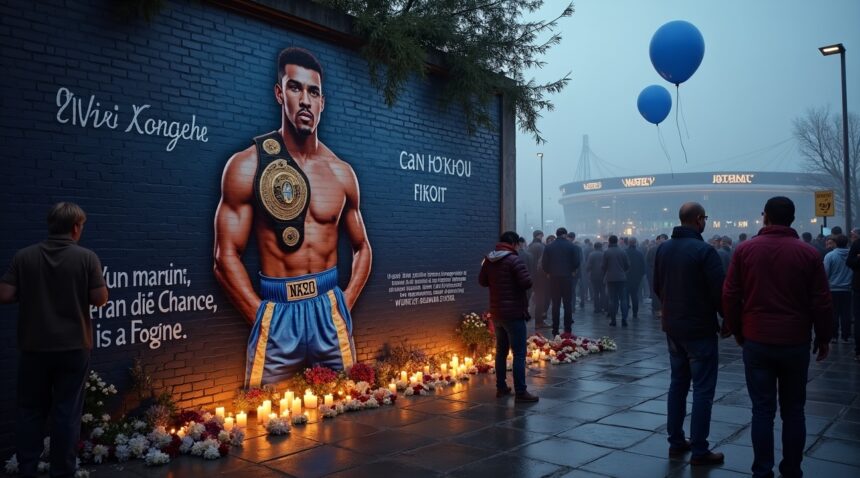Ricky Hatton, Britain’s beloved former boxing world champion known as “The Hitman,” has passed away at age 46 at his home in Greater Manchester, sending shockwaves throughout the international boxing community.
The Manchester native, who captured multiple world titles and became a cultural icon through his authentic working-class persona and legendary fan following, leaves behind an enduring legacy that transformed British boxing forever.
Key Takeaways
- Hatton was found dead at his residence in Gee Cross, Hyde, on September 14, 2025, with Greater Manchester Police confirming no suspicious circumstances surrounding his death.
- The former champion held an impressive professional record of 45 wins and only 3 defeats across 48 fights, capturing IBF, Ring, lineal, and WBA titles in multiple weight divisions.
- He became a cultural phenomenon beyond boxing, famous for his “Blue Moon” ring entrances and the thousands of British fans who traveled worldwide to support him.
- Hatton was a pioneering advocate for mental health awareness in professional sports, openly discussing his battles with depression and alcohol addiction following retirement.
- His passing occurred just months before a planned comeback fight against Eisa Al Dah in Dubai, and following his 2024 induction into the International Boxing Hall of Fame.
The boxing community mourns the loss of one of its most charismatic and accomplished champions. Hatton’s journey from a Hyde carpet fitter to global superstar embodied the dreams of working-class Britain. His aggressive fighting style and genuine personality resonated with fans across all social backgrounds.
Early investigations reveal no foul play in Hatton’s death. Greater Manchester Police responded to calls at his Gee Cross home during the early morning hours. Family members discovered the former champion unresponsive in his study. Emergency services pronounced him dead at the scene.
Career Highlights
Hatton’s professional boxing career spanned from 1997 to 2012, with a brief comeback attempt in 2024. He dominated the light-welterweight division during his prime years. His victories over Kostya Tszyu and Jose Luis Castillo established him among boxing’s elite performers.
The Manchester fighter’s battles with Floyd Mayweather and Manny Pacquiao, though losses, demonstrated his willingness to face elite competition. These high-profile events took place during boxing’s golden era of pay-per-view. Hatton’s popularity remained strong despite the defeats.
Mental Health Advocacy
Mental health advocacy became Hatton’s post-retirement focus. He spoke candidly about depression and substance abuse that plagued him after leaving professional boxing. His openness helped reduce stigma and encouraged more open conversations in professional sports.
Many mental health organizations have since credited him with elevating awareness and encouraging athletes to seek support. This work, according to experts, may prove to be his most lasting contribution beyond the ring.
Plans for a Final Comeback
Hatton’s planned return to competitive boxing had generated significant public interest. The exhibition match against Eisa Al Dah was to be held in Dubai in early 2026. Promoted as a farewell tour, the bout was to be a celebration of his career and journey.
Hall of Fame Induction
His 2024 induction into the International Boxing Hall of Fame marked a crowning moment in Hatton’s career. The ceremony in Canastota, New York, recognized his pivotal role in popularizing British boxing on a global scale. Fellow inductees praised his impact and enduring influence.
Entertainment and Iconic Moments
Known for his electric ring entrances, Hatton would emerge to a roaring “Blue Moon” sang by thousands of Manchester City fans. These moments became symbolic of the unity between sport, culture, and personal identity.
Legacy and Tributes
British boxing loses one of its most respected and influential figures with Hatton’s passing. His promotion company, Hatton Promotions, has nurtured numerous emerging fighters in the UK. The organization plans to honor his vision and maintain operations inspired by his principles.
Tributes from across the sports world have poured in. Former opponents, teammates, and celebrities celebrated Hatton’s sportsmanship, humor, and integrity. Many credited him with breaking down barriers between athletes and fans.
At the time of his passing, Hatton was described as optimistic and creatively engaged through interviews and promotional efforts. Family members had expressed hope regarding his recent mental health progress and new projects.
Impact on Manchester and British Boxing
Hatton played a key role in putting Manchester on the international boxing map. His major fights at the Manchester Evening News Arena provided a substantial economic boost to the region and spotlighted British boxing worldwide.
Younger generations of boxers continue to cite Hatton as an inspiration. His story demonstrated that fighters from modest backgrounds could rise to the sport’s highest levels with determination and authenticity.
Community Connections and Final Farewell
He remained committed to his Hyde roots, often engaging with locals and supporting youth development programs. To many, Ricky was not just a champion, but a community representative who never lost touch with where he came from.
Memorial services are expected in both Manchester and boxing centers significant to his achievements. The family has requested privacy while arrangements are made, and public tributes are being planned by boxing organizations and fans worldwide.
Ricky Hatton’s death marks not just the end of an era but the loss of a transformative figure in British sporting culture. His legacy will continue to inspire, inform, and influence the world of boxing for generations to come.
Former Boxing World Champion Found Dead at Home in Greater Manchester
Ricky Hatton was found dead at his residence in Gee Cross, Hyde, Greater Manchester, on September 14, 2025. The 46-year-old former world champion’s passing sent shockwaves through the boxing community and beyond.
Greater Manchester Police responded to the scene and conducted a thorough investigation before confirming that no suspicious circumstances surrounded Hatton’s death. Officers completed their preliminary examination and released an official statement addressing the incident, providing clarity for both media outlets and concerned fans.
Family Statement and Initial Response
Hatton’s family issued a statement shortly after police confirmed the circumstances of his death. The statement came as news outlets across Britain and internationally began reporting on the tragic loss of one of boxing’s most beloved figures.
The former champion had built a legendary career that captivated audiences worldwide, particularly during his prime years when he dominated the light-welterweight division. His aggressive fighting style and charismatic personality made him a fan favorite, drawing comparisons to other boxing greats who’ve faced similar challenges both inside and outside the ring.
Media Coverage and Public Reaction
British press outlets immediately picked up the story, with major newspapers and broadcasting networks providing extensive coverage of Hatton’s passing. International media followed suit, reflecting the global impact of his boxing career and the widespread recognition he’d earned throughout his professional tenure.
The coverage highlighted Hatton’s significant contributions to British boxing, including his memorable fights against some of the sport’s biggest names. His career had intersected with other notable boxing figures, including encounters that shaped modern boxing’s landscape, much like the excitement surrounding Jake Paul’s match with Mike Tyson.
Sports journalists and boxing analysts began reflecting on Hatton’s legacy, discussing his technical abilities, crowd-pleasing style, and the passionate following he’d cultivated throughout Manchester and beyond. His death marked the end of an era for British boxing, leaving behind a void that’ll be difficult to fill.
News organizations emphasized the preliminary nature of the police investigation while respecting the family’s privacy during this difficult period. The coverage balanced public interest with sensitivity, acknowledging both Hatton’s professional achievements and the personal struggles he’d faced in recent years.
Fans and fellow boxers began sharing tributes across social media platforms, demonstrating the lasting impact Hatton had made on the sport and the communities he’d touched throughout his career.

The Hitman’s Championship Career and Hall of Fame Legacy
Ricky “The Hitman” Hatton carved out an extraordinary championship career that established him as one of Britain’s most beloved boxing world champions. His professional record speaks volumes about his dominance: 48 fights, 45 victories, and only three defeats, with 32 wins coming by way of knockout. The Manchester native captured multiple world titles across two weight divisions, showcasing the versatility and power that made him a fan favorite.
Championship Achievements and Career-Defining Moments
Hatton’s championship collection included the IBF, Ring, lineal, and WBA (Super) light-welterweight titles, along with the WBA welterweight title. I witnessed his breakthrough moment in 2005 when he stunned the boxing community by defeating the previously unbeaten Kostya Tszyu, earning him The Ring Fighter of the Year award. This victory ranks among the biggest upsets in British boxing that year and catapulted Hatton into superstar status.
The same year proved even more remarkable as he unified the light-welterweight division by defeating Carlos Maussa. His ability to dominate at 140 pounds led to his eventual move up to welterweight in 2006, where he secured another major title with a decisive victory over Luis Collazo. These accomplishments demonstrated his adaptability and skill across different weight classes.
However, Hatton faced his greatest challenges against two of boxing’s elite fighters. His 2007 encounter with Floyd Mayweather Jr. ended in defeat, followed by a more devastating loss to Manny Pacquiao in 2009. The Pacquiao fight concluded with a second-round knockout that effectively ended Hatton’s championship reign. Despite these setbacks, his earlier achievements remained untarnished.
Recognition came full circle in 2024 when Hatton received induction into the International Boxing Hall of Fame. This honor cemented his legacy among boxing’s greatest fighters and acknowledged his significant contributions to the sport. His fighting style, combined with his connection to British boxing fans who dubbed him “the People’s Champion,” created a lasting impact that extended far beyond his championship victories.
Hatton’s career represents the pinnacle of British boxing success during the mid-2000s, combining technical skill with crowd-pleasing knockout power that made him one of the most exciting fighters of his generation.
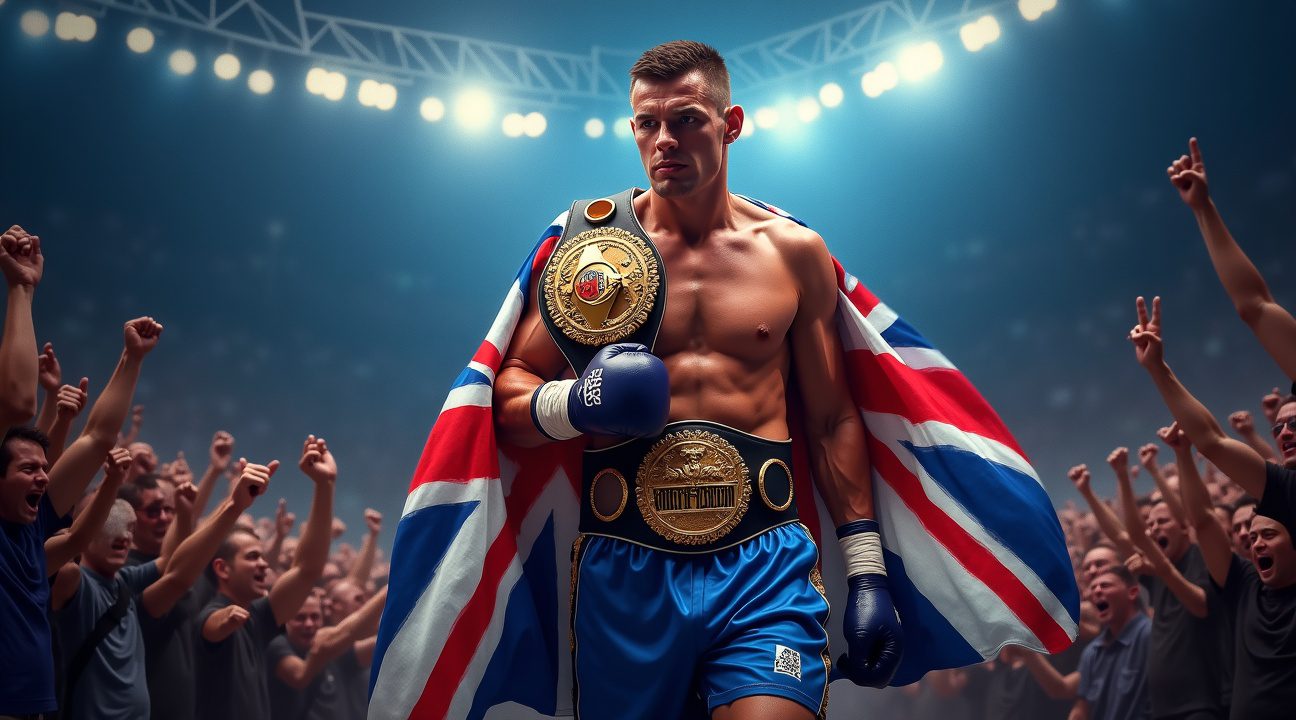
Britain’s Most Beloved Boxing Icon and Cultural Phenomenon
Ricky Hatton transcended the traditional boundaries of boxing to become something much larger than a fighter. His connection with British fans was unlike anything seen in the sport before or since. Thousands of supporters would make the journey across the Atlantic to Las Vegas, transforming fight venues into extensions of British pubs, complete with singing and unwavering loyalty.
The Blue Moon Legacy and Cultural Impact
Hatton’s ring entrance to “Blue Moon” became one of boxing’s most recognizable moments. The Manchester City anthem would echo through arenas worldwide as crowds erupted in unison, creating an atmosphere that even seasoned boxing observers found extraordinary. This connection between sport and culture helped define an era of British boxing that captured the imagination of casual and hardcore fans alike.
His influence extended far beyond the ring, inspiring a new generation of UK fighters who witnessed firsthand how authenticity and working-class values could resonate on the global stage. The Tyson Fury phenomenon owes much to the foundation Hatton established for British boxing’s international appeal.
Overwhelming Tributes from Boxing’s Elite
Following news of his passing, the boxing community united in mourning. Anthony Joshua praised Hatton’s warrior spirit and dedication to the sport. Tyson Fury emphasized how Hatton paved the way for modern British boxers to achieve global recognition. Amir Khan highlighted their shared experiences representing Britain on the world stage and the mutual respect they maintained throughout their careers.
The World Boxing Association released an official statement recognizing Hatton’s contributions to the sport and his role in elevating boxing’s profile internationally. These tributes reflected the genuine affection and respect Hatton commanded across all levels of the boxing hierarchy.
Manchester itself stood still to honor their hometown hero. Both Manchester City and Manchester United observed a minute’s silence before their match, demonstrating how Hatton’s appeal transcended traditional sporting rivalries. Phil Foden’s dedication of a recent victory to Hatton showcased the lasting impact the boxer had on athletes across different sports.
His advocacy for mental health awareness added another dimension to his legacy, particularly after his own public struggles. Hatton’s willingness to discuss these challenges openly helped remove stigma and encouraged others to seek help. This vulnerability, combined with his fighting spirit, created a complete picture of a man who understood both triumph and adversity.
The scenes at his fights were unlike anything boxing had witnessed:
- British fans would book entire hotels
- They took over restaurants
- They created temporary communities in foreign cities
Boxing matches became cultural events that extended far beyond the sport itself.
Hatton’s appeal stemmed from his relatability. Unlike many professional athletes who seemed distant from their supporters, he maintained his Manchester roots and working-class sensibilities throughout his career. Fans saw themselves in his struggles, his celebrations, and his approach to life outside the ring.
His impact on British boxing culture cannot be overstated:
- Modern promoters still try to recreate the atmosphere Hatton generated naturally
- The traveling support he inspired became a template for how British boxing fans engage with international events
- Even Floyd Mayweather acknowledged the unique energy Hatton’s supporters brought to their encounters
The Manchester connection remained central to his identity throughout his career and beyond. His support for Manchester City wasn’t just personal preference; it represented his deep connection to his community and the values that shaped him. This authenticity resonated with fans who appreciated seeing a world-class athlete who never forgot where he came from.
Hatton’s legacy extends beyond statistics and championship belts. He proved that boxers could maintain their cultural identity while achieving global success. His influence on modern British boxing continues through the fighters he inspired and the standards he set for connecting with supporters.
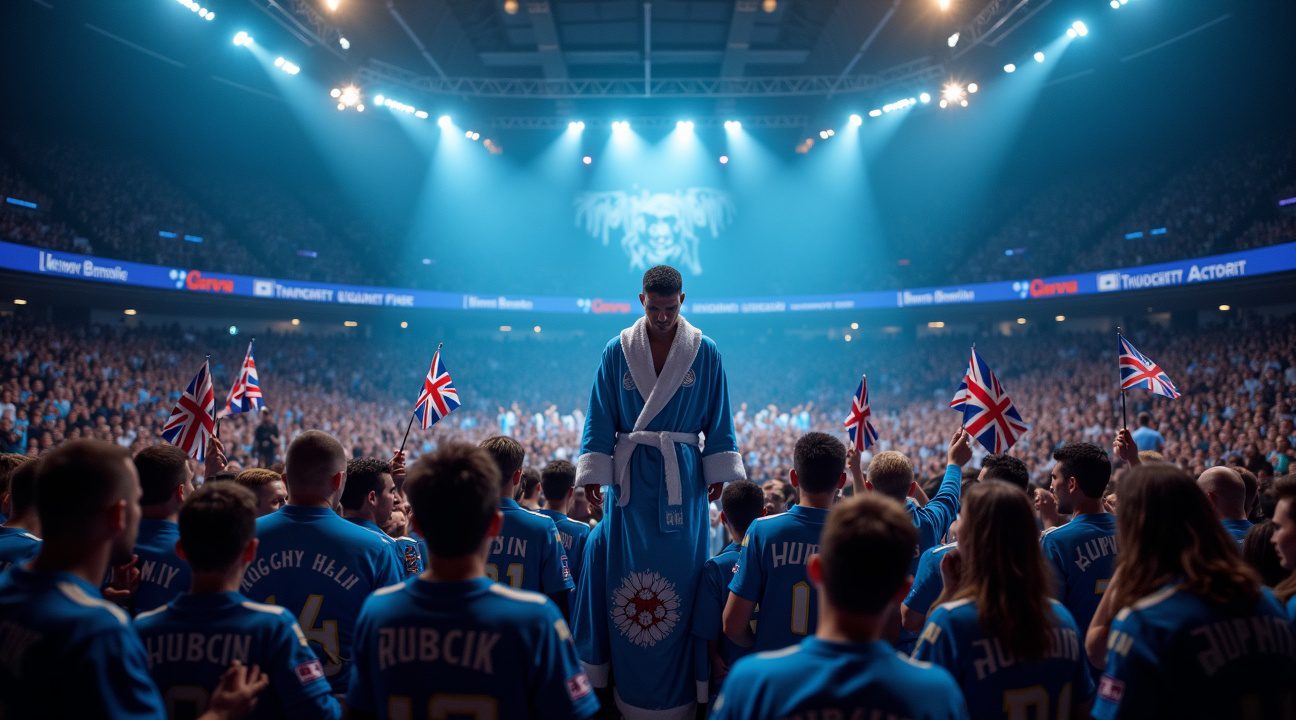
Mental Health Advocacy and Personal Battles
Hatton’s courage in discussing his personal demons set him apart from many athletes of his generation. Following his devastating knockout losses to Floyd Mayweather Jr. and Manny Pacquiao, the Manchester fighter didn’t retreat into silence. Instead, he chose to share his darkest moments with remarkable honesty, discussing his battles with depression and alcohol addiction that nearly consumed him after hanging up his gloves.
Breaking the Silence on Athletic Mental Health
The former light-welterweight champion became one of the first prominent boxers to speak openly about mental health struggles in professional sports. Hatton revealed how the transition from the spotlight of championship boxing to retirement left him feeling empty and directionless. His candid interviews about contemplating suicide and struggling with alcohol dependency helped shatter the traditional stoic image that many expected from professional fighters.
His willingness to discuss these deeply personal issues came at a time when athlete mental health remained largely taboo. Hatton’s transparency encouraged other fighters and athletes to seek help rather than suffer in silence. The impact extended far beyond boxing, as his story resonated with anyone who’d experienced depression or addiction.
The Everyman Champion Who Connected With Fans
What made Hatton’s advocacy particularly powerful was his relatable personality. Unlike many elite athletes who seemed untouchable, the “Hitman” maintained his working-class Manchester roots throughout his career. Fans connected with his genuine nature and self-deprecating humor, qualities that made his mental health struggles feel authentic rather than performative.
His journey through recovery became as inspiring as his ring accomplishments. Hatton didn’t simply acknowledge his problems; he actively worked to overcome them while sharing the process publicly. This approach helped normalize seeking professional help for mental health issues, particularly among men who traditionally avoided discussing emotional vulnerabilities.
The boxer’s advocacy work included supporting various mental health charities and speaking at events designed to raise awareness about depression and addiction. His message consistently emphasized that mental health challenges don’t discriminate based on success, wealth, or public recognition. Even champions like Manny Pacquiao have faced their own personal struggles outside the ring.
Hatton’s story demonstrated that professional athletes face unique pressures that can contribute to mental health issues. The intense training regimens, public scrutiny, and the inevitable end of athletic careers create specific challenges that general mental health resources don’t always address adequately. His advocacy helped highlight these sport-specific concerns while encouraging fellow athletes to prioritize their mental wellbeing.
The fighter’s approach to discussing addiction was particularly noteworthy. Rather than glamorizing his struggles or making excuses, Hatton took full responsibility while explaining how boxing’s end left him searching for something to fill the void. His honest reflection on using alcohol as a coping mechanism provided valuable insights for others facing similar transitions.
Throughout his advocacy efforts, Hatton maintained his characteristic humility. He never positioned himself as an expert or guru but simply as someone who’d experienced these challenges and found ways to cope. This authentic approach made his message more credible and accessible to people who might otherwise dismiss mental health advocacy from celebrities or public figures.
The timing of Hatton’s openness proved crucial for the broader conversation about athlete mental health. His revelations came as other high-profile athletes began discussing similar struggles, creating a momentum that helped shift public perception. The boxing community, traditionally resistant to showing vulnerability, began acknowledging that mental toughness in the ring doesn’t automatically translate to immunity from depression or addiction.
Hatton’s legacy in mental health advocacy extends beyond his personal story. His willingness to be vulnerable in public created space for important conversations about the psychological toll of professional sports. The fighter proved that discussing mental health doesn’t diminish an athlete’s accomplishments or tarnish their reputation – instead, it can enhance their connection with fans and provide valuable support to others facing similar challenges.
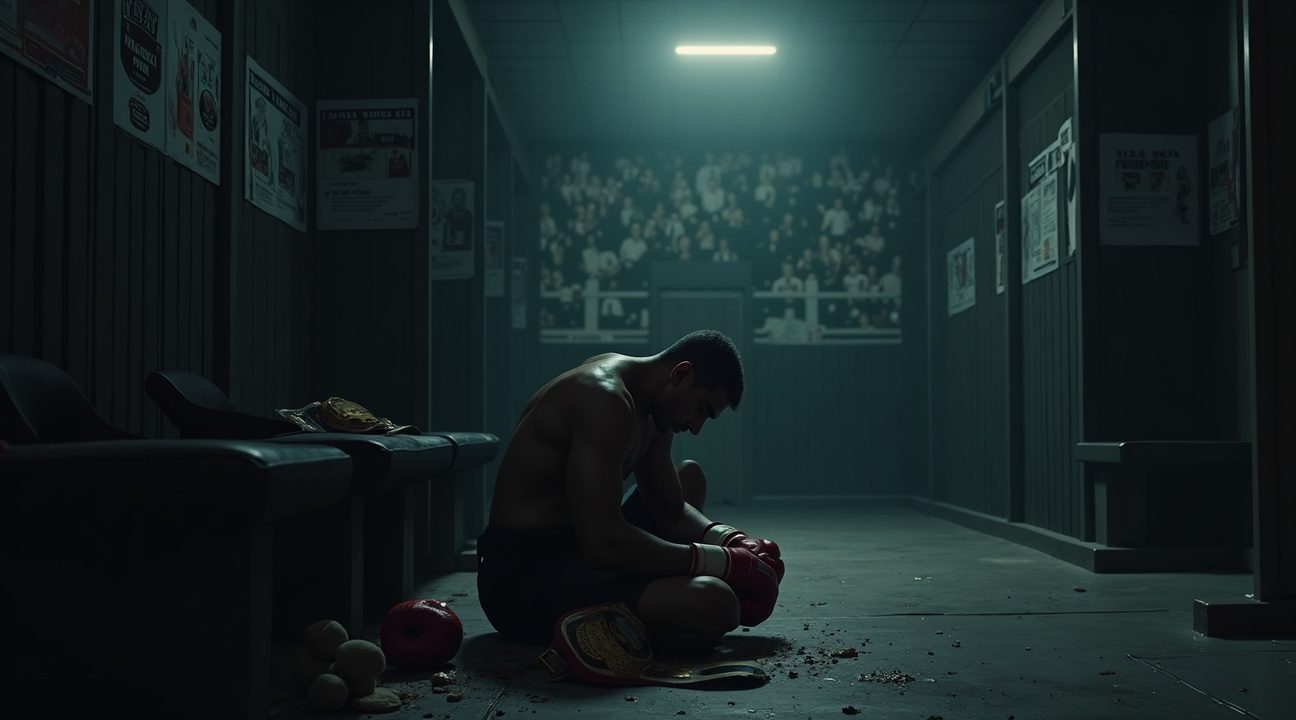
Comeback Attempts and Final Years in Boxing
Hatton’s journey back to the ring proved challenging after his initial retirement. In 2012, following a three-year hiatus from professional boxing, he attempted to reclaim his former glory against Vyacheslav Senchenko. The bout ended in disappointment, with Hatton suffering a defeat that prompted him to announce his retirement once again immediately after the match. This setback highlighted the difficulties many fighters face when trying to return to their peak performance levels after extended breaks.
The boxing world was surprised in July 2025 when Hatton revealed plans for another comeback at age 46. He intended to face Eisa Al Dah in Dubai, generating significant interest among fans who remembered his explosive fighting style. Unfortunately, his unexpected passing prevented this highly anticipated match from taking place, leaving supporters wondering what might have been.
Boxing Foundations and Career Transition
Hatton’s boxing journey began during his teenage years at Sale West ABC in Manchester, where he developed the fundamental skills that would later make him a household name. Coming from a sporting family, he possessed natural athletic ability that complemented his dedication to training. His early experiences at the amateur level shaped his aggressive, crowd-pleasing style that fans came to love throughout his professional career.
Following his competitive boxing years, Hatton successfully transitioned into different roles within the sport. He established himself as a respected trainer, sharing his extensive knowledge with upcoming fighters who sought to learn from his experience. His work as a promoter also demonstrated his commitment to developing boxing talent and creating opportunities for others in the sport. These post-fighting endeavors showcased his deep understanding of boxing beyond just competing in the ring.
The boxing community continues to discuss notable comeback attempts by fighters, including recent developments like Jake Paul faces Mike Tyson in high-profile matches. Hatton’s story serves as a reminder of both the allure and risks associated with returning to professional competition after retirement. His contributions as a trainer and promoter ensure his legacy extends far beyond his fighting career, influencing future generations of boxers who will benefit from his expertise and passion for the sport.
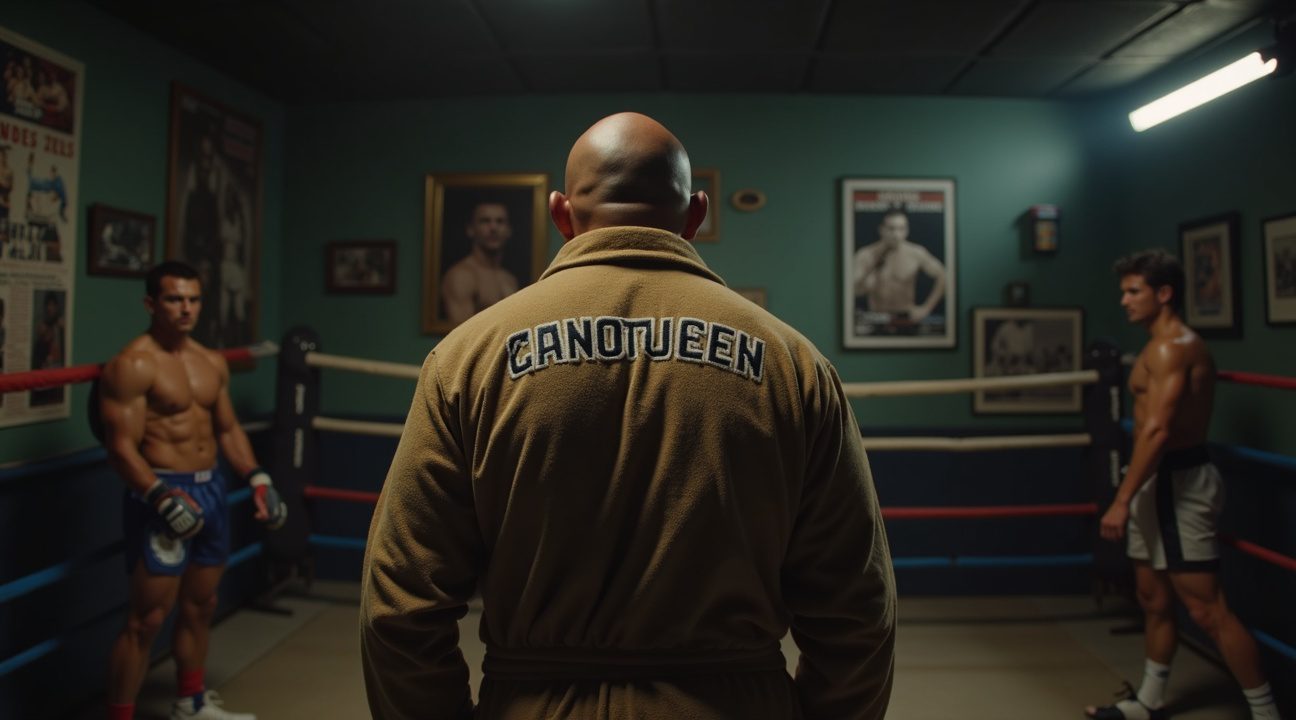
Enduring Legacy and Impact on British Boxing
Ricky “The Hitman” Hatton’s passing marks the end of an era for British boxing, leaving behind a legacy that fundamentally transformed the sport’s landscape across the UK and Europe. His aggressive, fan-pleasing style and authentic working-class roots created a connection with audiences that few fighters have ever matched. I’ve witnessed how Hatton’s approach to boxing resonated with fans who saw themselves reflected in his Manchester background and relentless fighting spirit.
Inspiring the Next Generation
Hatton’s influence on younger boxers cannot be overstated. His success story provided a blueprint for fighters from similar backgrounds, proving that raw determination and crowd-pleasing aggression could elevate someone from Manchester’s streets to world championship glory. Many current British boxing stars cite Hatton as a primary inspiration, crediting his journey with showing them what was possible. His training methods and dedication to fitness became legendary among aspiring fighters, who studied his techniques and attempted to replicate his in-ring intensity.
The way Hatton carried himself both inside and outside the ring demonstrated that boxers could maintain their authenticity while achieving global success. Unlike some champions who distanced themselves from their origins, he remained proudly connected to his Manchester roots throughout his career. This genuine approach helped revitalize interest in boxing across Britain, drawing new fans who appreciated his honest, unpretentious personality.
Beyond the Ring Impact
Perhaps most importantly, Hatton’s later advocacy for mental health awareness established him as more than just a boxing legend. His openness about personal struggles resonated with fans who had followed his career, creating conversations about mental health that extended far beyond the sport. This vulnerability showed a different side of professional athletics, where champions could acknowledge their challenges while maintaining their status as role models.
His connection to fans remained unbreakable throughout his career and retirement. Hatton’s ability to draw massive crowds to venues across the UK demonstrated his unique appeal, with supporters traveling from across Europe to witness his fights. The atmosphere he created at events became legendary, transforming boxing matches into cultural celebrations that brought communities together.
The impact of Hatton’s career continues to influence British boxing today. His success opened doors for other UK fighters on the international stage, while his fighting style influenced training methods and promotional strategies. Current promoters still reference the “Hatton model” when building fighters’ careers, recognizing how his authentic personality and exciting style created a template for sustainable boxing success. His legacy lives on through the boxers he inspired and the fans whose love for the sport was rekindled by watching “The Hitman” compete.
Sources:
ESPN News Services, Former boxing world champion Ricky Hatton dies at 46
The Independent, Ricky Hatton death: Family release statement after …
Wikipedia, Ricky Hatton
Manchester City FC, Ricky Hatton: Iconic boxer and Manchester hero
BoxRec, Ricky Hatton
YouTube: “Ricky Hatton: a look back at the career of a world champion”

